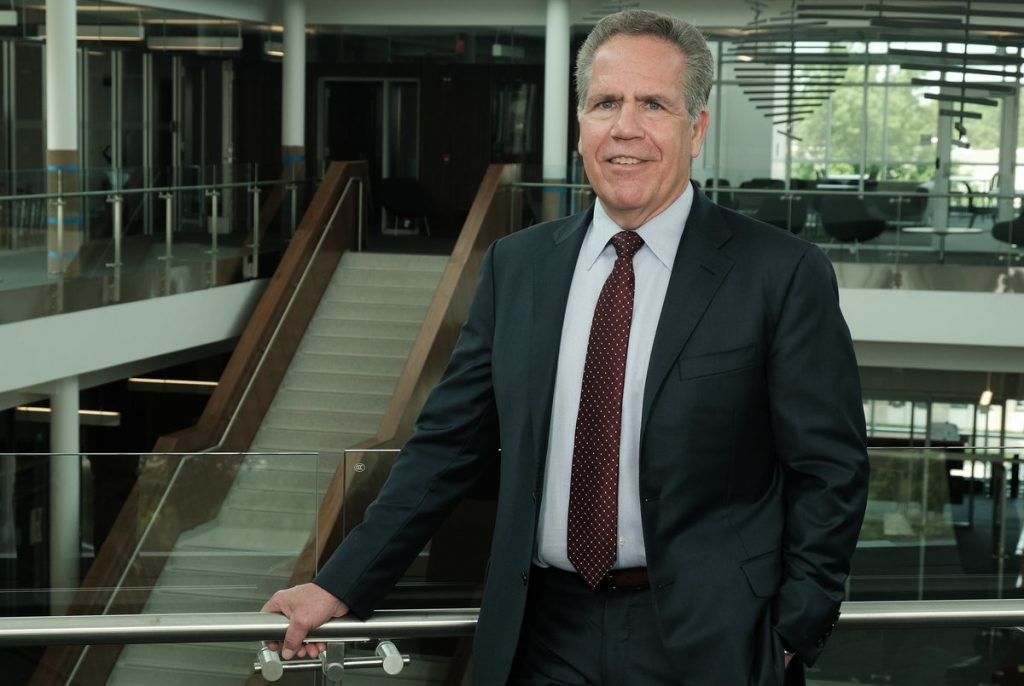Subscriber Benefit
As a subscriber you can listen to articles at work, in the car, or while you work out. Subscribe NowExperts say smaller, private colleges and universities could be in trouble in the coming years as demographic trends mean there will be fewer students to fill an increasing number of spots at schools.
Butler University James Danko tells podcast host Mason King that the university is taking those concerns seriously and is rethinking who it’s serving, how it’s distinguishing its offerings and the way it’s preparing to innovate as technology changes education.
The school is in a good financial position, Danko says, but it’s working to build up its endowment (which is smaller than some of its peers). That’s just one of the goals of the Butler Beyond campaign, which is aiming to raise $250 million that also will fund building projects and additional scholarships.
To learn more about Danko, read Samm Quinn’s profile of the Butler president. To learn more about the challenges facing universities as demographics change, read Quinn’s story about what universities are doing to prepare to compete.
Click here to find the IBJ Podcast each Monday. You can also subscribe at iTunes, Google Play, Tune In and Spotify. Here are some of our recent podcasts:
IBJ Podcast: Pat Sullivan makes business case for store’s North Pole train
IBJ Podcast: How an Indy group will use $11.6 million to help black students achieve
IBJ Podcast: The new owner of WISH is investing $3 million. He explains why.
IBJ Podcast: Roger Penske wants to create an ‘entertainment capital’ in Speedway. What does that mean?
IBJ Podcast: Pete the Planner on the five deadly sins of money management
Photo by IBJ’s Eric Learned.
Please enable JavaScript to view this content.


I would think that Butler is in better shape than many smaller, liberal arts colleges and universities. For example, Butler has a pharmacy school that most others do not. This would seem to be a competitive advantage to me.
Butler is a small private college in a big-time city
Can someone help me understand how the inflation of fees charged by higher education institutions like Butler have outpaced almost every other element of our economy other than health-care – and YET – they’re in financial trouble? I don’t understand what it’s going to take to get them to respond to pressures from consumers who have to look elsewhere for affordable college education.
I believe they got caught up in the race to build more impressive campus facilities and dorm rooms and passed those costs on to consumers (parents and students) who didn’t understand the true cost of the loans, “grants” and funds they were “receiving”.
When you put a financier between the business (college, hospital, doctor) and the customer (student, parent, patient) you see runaway costs because the end-user doesn’t feel the “pain” of having to pay for service.
Forgive my rant but as I save to send my kids to college, I’m paying $25,000 – $30,000 per year for private health-care insurance (we’re self employed) with a high-deductible plan and $10,000 out-of pocket per year (not including premiums obviously).
Just my thoughts…